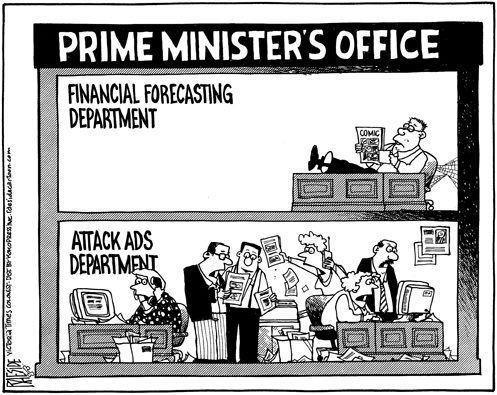
I have written about Allan Gregg on this blog before; probably his most noteworthy recent contribution to political discourse came in his speech to Carleton University’s School of Public Affairs, in which he denounced the Orwellian bent of the Harper regime in its promotion of ignorance in place information and knowledge.
Gregg offers his thoughts on attacks ads in this morning's Star. In contrast to the blood sport that it has become under the Harper regime, Gregg defines politics this way:
For good or ill, politics is the process by which we organize civil, democratic society. It is used to allocate a nation’s scarce resources. Through it, we confer a monopoly on the legitimate use of violence. Because of it, we are able to represent the wishes of the majority and at the same time protect the rights of the minority. And at bottom, politics creates a state that has the potential to do immense good or infinite harm and, as such, we all have a vested interest that the best and brightest and only those who are motivated by the public good are encouraged to enter public life.
By this definition, the Harper government has abjectly failed the public whose interests and well-being they were charged with protecting and promoting. Gregg readily admits that attack ads do work because they play to people's innate cynicism about politicians. And as I have asserted before, I believe that the additional purpose behind Harper's 'politics of denunciation' is the discouragement of people from voting, thereby allowing the 'true believers' (whoever those benighted souls may be) to have disproportionate influence at the polls.
I consider Gregg as one who knows of what he speaks. The 'brains' behind the 1993 campaign ad ridiculing Jean Chretien's facial deformity, he must have at some point experienced a Damascene conversion, no doubt facilitated by the Harper regime's relentless practice of politics that bespeaks a depraved indifference to the health of our democracy, of which attack ads are only a small part. Gregg now seems to be spending much of his time trying to atone for those past mistakes, and today's Star article seems very much a part of that process of penance.
So I will leave the final word with the former pollster:
... those who believe that this (the public good) is “what politics are really about” have a responsibility to draw attention to its virtues and not just its shortcomings.







